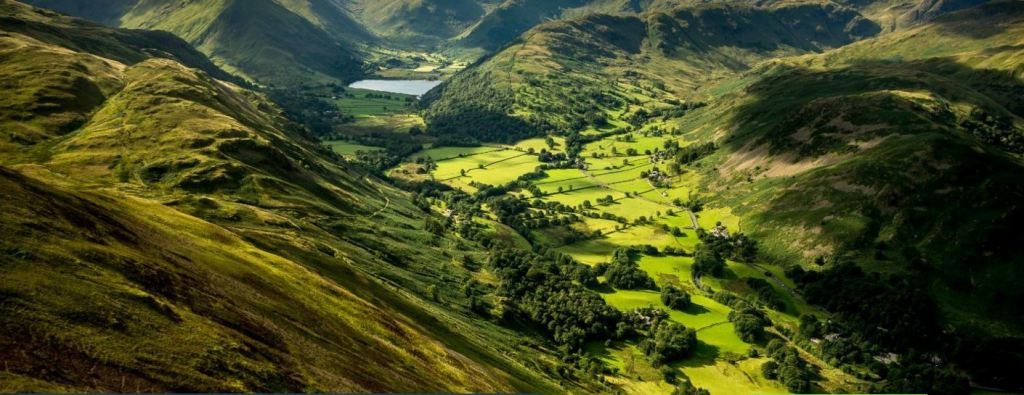The Lake District has become a World Heritage Site joining iconic locations such as the Taj Mahal, the Great Barrier Reef and Grand Canyon as a place of international acclaim.

Patterdale Valley exemplifing World Heritage Site Outstanding Universal Value ‘Identity’ National Trust Images John Malley
The announcement July 9th in Krakow has led to jubilation among 25 organisations in the Lake District National Park Partnership who had put the bid together for UNESCO recognition in the cultural landscape category.
Chairman of the Partnership, Lord Clark of Windermere, described the prestigious status as momentous and it will bring great benefits for locals, visitors, tourism, businesses and farming. It now joins just over 1,000 World Heritage Sites worldwide.
Cultural landscape of international significance
Three key themes underpinned the bid for World Heritage Site status, recognising the Lake District National Park as a cultural landscape of international significance. These include world ranking examples of identity – the dramatic farmed landscape; inspiration – art, literature and love of the place. This in turn sparked the birth of conservation – people fought and invested to look after this special corner of England.
An evolving landscape
Lord Clark said ‘It is this exceptional blend which makes our Lake District so spectacularly unique and we are delighted UNESCO has agreed. A great many people have come together to make this happen and we believe the decision will have long and lasting benefits for the spectacular Lake District landscape, the 18million visitors we welcome every year and for the people who call the National Park their home.’
Lake District National Park Chief Executive, Richard Leafe, said there was great excitement over the achievement. ‘The Lake District is an evolving landscape that has changed over time and will continue to do so. Improving landscape biodiversity and looking after our cultural heritage underpin the Partnership’s management plan which sets out how, together, we will look after the National Park as a World Heritage Site for everyone to enjoy.’
“We are delighted that World Heritage Site status recognises the Lakes as the spiritual home of the Trust and our work to look after it over the last 120 years. The status also celebrates the ever-evolving relationship between people and nature.“



